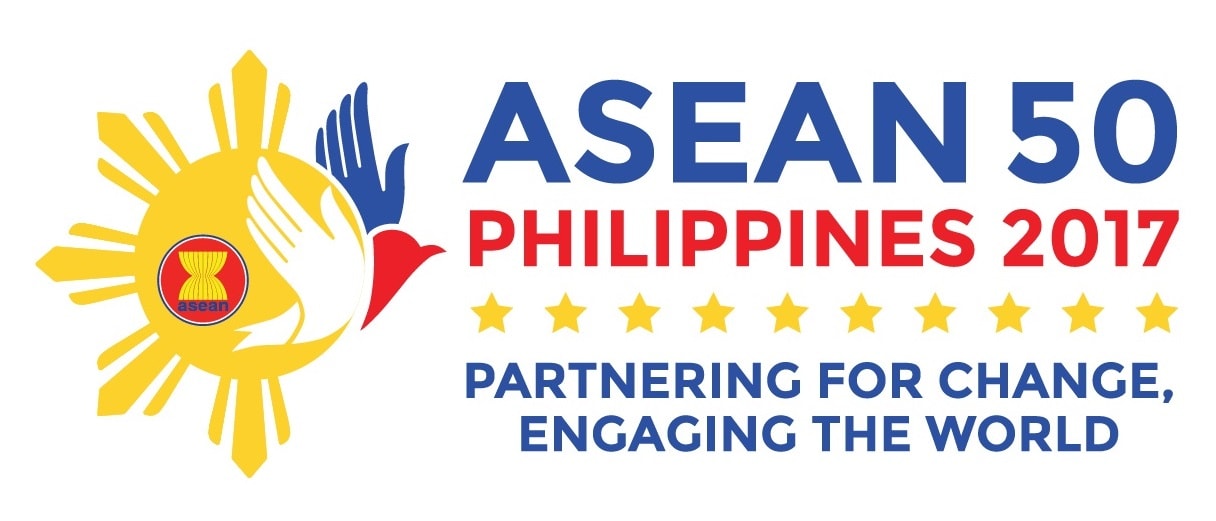The Association of Southeast Asian Nations (ASEAN) is a region of significant economic and strategic importance, located in the heart of Asia and centred on important trading routes between Europe and Asia and the Pacific. It is composed of 10 Southeast Asian nations. The five founding members, which established ASEAN in 1967 were Indonesia, Malaysia, the Philippines, Singapore and Thailand; Brunei Darussalam (joined in 1984), Vietnam (1995), Lao People’s Democratic Republic (Lao PDR) and Myanmar (both joined in 1997) and Cambodia (joined in 1999).
The Philippines takes the helm of the ASEAN Chairmanship in 2017. This will be a grand year as ASEAN will mark and celebrate its 50th Anniversary. The Philippines officially launched the hosting of ASEAN 2017 in Davao on 15 January. The ASEAN Business and Investment Program was launched on 24 January in Malacañang Palace.

The Logo
The logo for Philippines 2017 ASEAN Chairmanship has the following elements:
• Bright yellow sun represents ASEAN’s aspirations of prosperity and hopeful beginning for ASEAN@50
• The hands represent unity, which embodies ASEAN’s vision of solidarity among states.
• Dove of peace represents courage and dynamism.
• Stars represent the 10 ASEAN Member States, positioned to symbolize equality and active collaboration
The Theme
The Philippine Chairmanship bears the theme: “Partnering for Change, Engaging the World”. The theme captures the Philippines’ resolve to have the ASEAN Community, tread by a sense of togetherness and common identity, take its rightful place in the global community of nations. The theme is also in line with the current administration’s and the region’s pursuit to enhance cooperation with global partners. The theme aims to highlight ASEAN as a model of regionalism and a global player, with the interest of the people at its core.
Philippines will focus on six thematic priorities, which encompass political, economic and socio-cultural aspects:
• A people-oriented and people-centered ASEAN (ASCC)
• Peace and stability in the region (APSC)
• Maritime security and cooperation (APSC)
• Inclusive, innovation-led growth (AEC)
• ASEAN’s resiliency (ASCC)
• ASEAN: A model of regionalism, a global player (APSC)
AEC Thematic Priority
For the ASEAN Economic Community (AEC), the priority is “inclusive, innovation led growth”. Under this priority theme, Philippines is poised to champion the MSME mandate in ASEAN and further leadership in areas of key economic interests. With the substantial progress of AEC comes greater interest and confidence in the prospects and opportunities for businesses, both big and small.
High on Philippines’ hosting agenda for the economic pillar are deliverables geared toward instituting an enabling environment that allows MSMEs to develop and internationalize through policies that ease the cost of doing business and through support activities that nurture their continuous growth. ASEAN is cognizant of the need for more inclusive participation in the process of community building, to ensure that the benefits of integration are fully realized and shared by everyone in the region.



